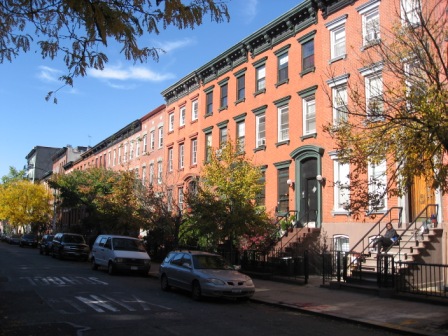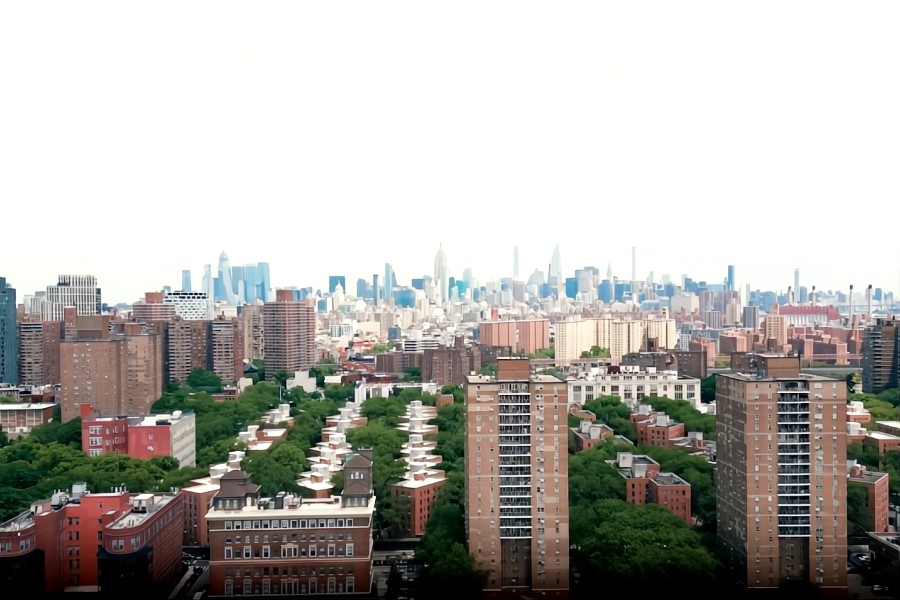 The NYC Health Department announced today that New York City’s colon cancer screening rate increased by 66 percent in the last decade. Despite colon cancer being one of the most preventable cancers, it is the second deadliest cancer, killing more than 1,300 New Yorkers in 2013. Colonoscopies are the best tool to prevent and protect against colon cancer. Colon cancer screening can detect cancer in its early stage, when it is more treatable. Colonoscopies can also detect precancerous polyps – abnormal growths in the colon or rectum – which can be removed before they turn life-threatening.
The NYC Health Department announced today that New York City’s colon cancer screening rate increased by 66 percent in the last decade. Despite colon cancer being one of the most preventable cancers, it is the second deadliest cancer, killing more than 1,300 New Yorkers in 2013. Colonoscopies are the best tool to prevent and protect against colon cancer. Colon cancer screening can detect cancer in its early stage, when it is more treatable. Colonoscopies can also detect precancerous polyps – abnormal growths in the colon or rectum – which can be removed before they turn life-threatening.
The City’s average colonoscopy rate in 2014 was 70 percent, up from 42 percent in 2003 when NYC first began tracking colonoscopy rates. The number of New Yorkers screened has doubled from 826,000 in 2003 to 1,696,000 in 2014. As colon cancer screening increased, mortality has decreased by nearly 30 percent between 2003 and 2013. New York City has eliminated the screening gaps for colorectal cancer that existed in 2003 among racial/ethnic groups, but health insurance disparities persist. Only half of uninsured New Yorkers are up to date on colon cancer screenings. The Health Department is partnering with colon cancer survivor and NY1 anchor Roma Torre, NYC Health + Hospitals, and the American Cancer Society to produce a new public service announcement, “I Did It!” Resources and information about colon cancer screening can also be found at nyc.gov/health/coloncancer.
“Colonoscopies are the best way to prevent colon cancer, which is why ‘I Did It!’ and had a colonoscopy when I was 50 and again when I turned 60,” said Health Commissioner Dr. Mary T. Bassett. “If you are 50 or older, it’s time to get screened for this highly preventable disease.”
“NYC Health + Hospitals offers affordable colonoscopies and other screening tests to all New Yorkers, regardless of their ability to pay or immigration status,” said NYC Health + Hospitals President Dr. Ram Raju. “Our intent is to make colon cancer screening a routine part of preventive health care for everyone over the age of 50. Effective early detection of avoidable cancers is an important public health goal.”
“I waited too long to do the routine screening for colon cancer and discovered I had a malignant tumor. Doctors removed part of my colon but, fortunately, the tumor had not spread and I am now cancer free. Don’t make the mistake I made. If I had listened to the recommendations and gotten a colonoscopy when I turned 50, I could have avoided the painful ordeal of a cancer diagnosis in my life. It really is that simple!” said NY1 anchor Roma Torre.
“It’s encouraging that more New Yorkers are being screened for colon cancer, the second leading cause of cancer death. With colon cancer one of the most preventable and treatable forms of cancer, it’s important to increase public awareness about the ease and effectiveness of colon cancer screening,” said Assembly Member Richard N. Gottfried, Chair of the Assembly Committee on Health.
“While colon cancer is one of the most deadly cancers, it is also one of the most preventable,” said NYC Council Member Corey Johnson, Chair of the Committee on Health. “Colon Cancer Awareness Month is an opportunity for us to remind all New Yorkers to get screened. I applaud the Department of Health and Mental Hygiene for the last decade’s increase in screening rates and for continuing to raise awareness about this important issue.”
Colon Cancer Prevention Activities
Convened by the New York City Department of Health and Mental Hygiene (DOHMH), the Citywide Colon Cancer Control Coalition (C5) is a dedicated group of stakeholders, including NYC Health + Hospitals and the American Cancer Society, who work together to implement programs to increase screenings and reduce inequities.
One such program is the NYC Community Cares Project, a program that links uninsured patients in primary care to endoscopy centers for free colonoscopy screening. Launched in the summer of 2013 with six pilot sites and led by the Health Department, the program has expanded to 45 sites. Participating sites are comprised of freestanding endoscopy centers and primary care centers, such as Federally Qualified Health Centers. More than 1,300 uninsured New Yorkers have been screened through the NYC Community Cares Project since the program began.
Another critical component of NYC’s colon cancer prevention efforts is the Health Department’s Colonoscopy Patient Navigator Program, which assists patients in completing a colonoscopy. Navigators work with colonoscopy patients to “navigate” the health care system and access appropriate resources and services. Navigators are trained health care workers who help patients overcome potential cultural barriers and other barriers to quality care. This program has been implemented in 18 NYC hospitals, including all 11 Health + Hospitals facilities. In the past decade, over 115,000 patients have received help to complete their colonoscopies.
The Health Department recommends that New Yorkers first get screened for colon cancer at the age of 50. A colonoscopy is usually needed only once every 10 years if test results are normal. A colonoscopy is safe, usually painless, and takes about 30 minutes.
To reduce the risk of colon cancer, New Yorkers should:
- Get screened
- Quit smoking
- Maintain a healthy weight
- Exercise regularly
- Eat a diet rich in fiber, fruits, and vegetables
For more information on where to go for colon cancer screening, call 311 or search for “colonoscopy” on NYC.gov.
Become a Harlem Insider!
By submitting this form, you are consenting to receive marketing emails from: . You can revoke your consent to receive emails at any time by using the SafeUnsubscribe® link, found at the bottom of every email. Emails are serviced by Constant Contact








